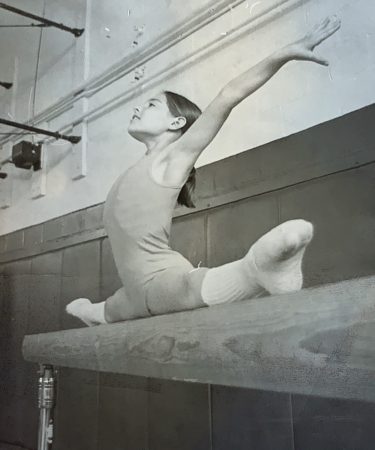Simone and Suni’s Psychological Safety Net

I grew up doing gymnastics. I wasn’t Olympics material, but I was pretty good at the time and even won a few medals at state competitions. Over the years, I certainly did my share of falling off the beam and the bars. I practiced hundreds of backflips before I could do one that didn’t look like a whip back. In one competition, my mis-footing on the vault caused me to go under the horse instead of over it. You get the idea—learning a craft isn’t pretty. And, in a sport like gymnastics, whether you stick your landing or fall on your butt, it’s all on you. Back then, I didn’t know anything about a psychological safety net for athletes.
As a gymnast, dancer, skater, skier, I always regretted that I didn’t participate in a team sport. That is, until now. Until Simone Biles withdrew from her Olympics gymnastic competition and showed the world what being a teammate is all about. In individual sports, we may be on our own, but we aren’t alone. We’re still part of a team.
Psychological Safety Nets for Athletes
A few years ago, Google conducted a 2-year study of more than 200 teams, Project Aristotle. Their goal was to understand the factors contributing to team success. I also recently read Gina LaRoche and Jennifer Cohen’s book, The Seven Laws of Enough. Gina and Jen remind us that nobody gets to where they are on their own—even Jeff Bezos, Bill Gates, and Elon Musk. Behind every successful person is a team of individuals who pick up the slack, care for family members, provide a roof or a meal, encouragement, leeway, or security. In the Google study, researchers found just one constant that differentiated high-performing teams from others, and it wasn’t just about the skills of the team members.
Overwhelmingly, successful teams felt they had “psychological safety.” That is, individual team members believed they wouldn’t be punished or suffer negative consequences if they made a mistake. I’ll reiterate, the research explored team success, not individual success.
Suni Lee’s Psychological Safety Net
Let’s flip back (pun intended) to our gymnasts, Sunisa Lee and Simone Biles. A day after Ms. Biles withdrew from the competition, Ms. Lee won the Women’s Gymnastics All-Around Gold Medal. Without taking anything from Suni’s amazing individual accomplishment, let us recognize the power of a teammate who was 100% behind her – a teammate who herself felt safe and supported enough to tell the world she was withdrawing in order to care for her mental well-being. Biles didn’t leave or hide. She stayed to cheer for and encourage her team. We also saw the tremendous support of Ms. Lee’s extended family.
It’s inarguable that Suni Lee had an amazing psychological safety net. Might it have contributed to her success in Toyko? We may never know for sure, but it sure would be interesting to study further!
Creating Psychological Safety Nets for your Team
Sometimes safety nets happen organically when one person decides to open up and share thoughts, feelings, or a personal challenge they’re facing. Short of that, team leaders wishing to create safe spaces can set the tone by modeling openness, embracing risk, withholding judgment and criticism, and inviting vulnerability. Often, it comes down to engaging in rich conversation, building trust, and listening. To get on the right track, consider some Trainers Warehouse conversation starters, such as Thumballs, UNZiP-IT! Decks, and photographic card decks.
PHOTO CREDIT: U.S. gymnast Suni Lee competes in floor exercise during the women’s all-around final. (Wally Skalij / Los Angeles Times)
Read more…
Emotional Intelligence Activities and Exercises


The Training of Athletes is no different from what we do in Corporate and Non Corporate Groups. Unless we are are able to address the total person, KASH(Knowlege, Attitude,Skills,and Habits) plus creating the complete safe environment for learning and failing, our expectations from Training will never be optimized.
I knew we had a teambuilding story coming to life when Simone Biles stepped down and let her team mates support her as she supported them. Team building is amazing when it happens organically. Thanks for sharing Suni’s story. She is an amazing gymnast!
I learned that stress is unavoidable and that it accumulates over time. It seems that even people who feel stress-free are really not. I also found out that all memoried have emotional charges attached to them some are weak and some are stronger. Some (charges) are good and some are bad, but they all affect our bodies whether we are aware of them or not. I found a way to neutralize years of accumulated ‘bad’ charges in minutes. I’m looking for 5 folks to share this in exchange for testimonials. Reply if you’re interested.